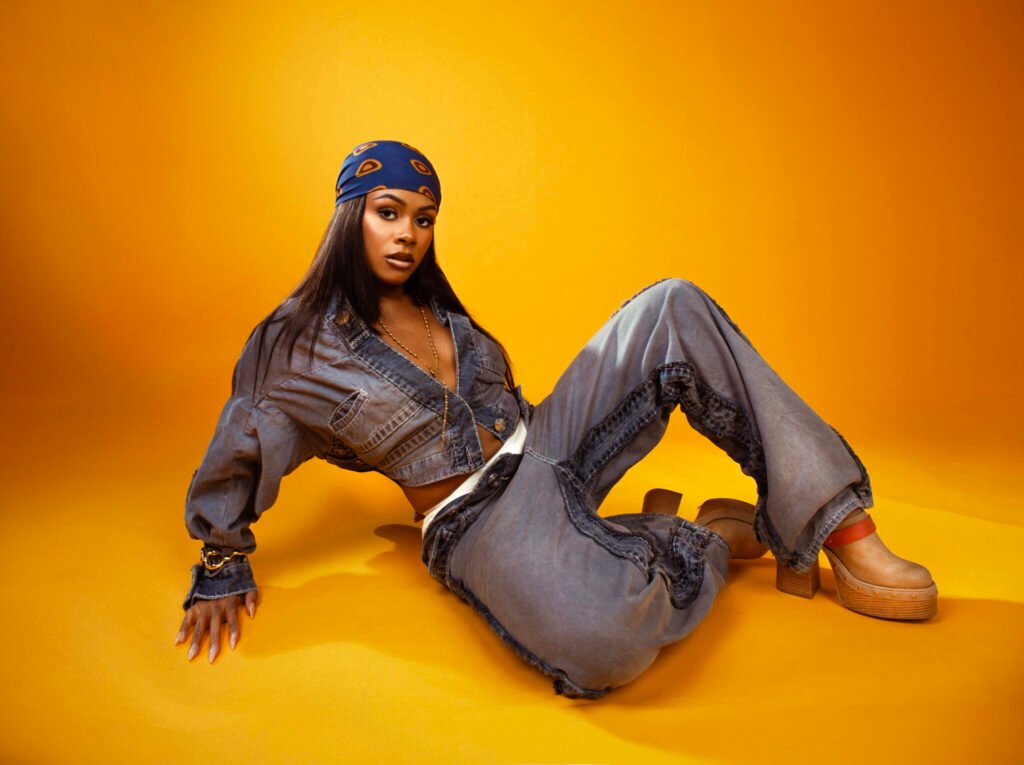In CLASH, the Watford-raised artist explores the complexities of her dual background and the challenges she faced living on the outskirts of London. She ruminates on the obstacles she encountered when breaking into the music industry, where her mixed-race background often added further difficulties to her journey.
—
—
I am proud of my dual heritage. My father’s side is Jamaican, my mother’s side is Russian and Hasidic Jewish. That dual heritage with such a rich and diverse background has shaped my life in so many positive ways, both personally and professionally, that I still learn and understand. But it was a journey and a source of confusion and struggle.
I grew up in Watford, a melting pot of different races and cultures. Elementary school was a completely normal life, and there were many people around me from different backgrounds. It was only when I moved to secondary school in a much more rural (and far from the diversity I was used to) area that I started asking more questions. I had already hit puberty and was questioning everything about myself (as teenagers do), but now I was trying to do well in a school where no one looked like me. This added an extra layer of difficulty in getting along. It made me feel isolated in terms of my identity. I didn’t know where I fit in.
At home, my parents did not fully understand the inner conflict I was experiencing. My wonderful white mother was the only woman I had to look up to every day (she is still the woman I look up to). Of course I had other family members, but as a young girl, the image of my mother was what I measured myself against. I couldn’t understand why my hair didn’t brush out as easily as hers. I even remember asking her, “Why am I brown?” To be clear, I didn’t hate being brown, I was just confused. Beauty standards did not include people who looked like me, and I internalized this from a young age. I straightened my hair, bleached it, permed it, did anything to make myself look good. That doesn’t mean I’ve never been drawn to my dark side. I have always been very in tune with my blackness. It’s just that the world made me think I shouldn’t be like that.
—
—
Having said all of the above, all of the above has shaped me into the young woman I am today. My dual heritage is something I have struggled with and at the same time has been my biggest inspiration. I never fit neatly into one group. I felt like I was too white for my black friends and too black for my white friends. That was a problem because I felt like I had to pretend to be something I wasn’t or choose a side. But why should I choose? I’m both. When people look at me, they think I’m black because my skin looks brown. My skin is brown, but I’m just as proud of my white side as my black side. Part of that may have been due to the trip to London. Growing up around London played a huge role in shaping the person I am. My grandparents came directly from Jamaica and settled in Wood Green and Tottenham. Their influence was a huge part of my life. Although I didn’t live in London, I was always there visiting family and friends. London is truly a melting pot of cultures, and its diversity opened my mind in ways that my rural school environment never could. I felt more comfortable. For example, when I played a dancehall track, people didn’t think, “Oh my god, stop this shit.” I love celebrating different cultures and the feeling of toasting to each other’s differences.
My upbringing influences the music I make. The beauty of music is that it can transcend race, and I want my music to reflect that inclusivity. By the time I got into the music industry, I knew who I was. When A&Rs questioned the different genres I made and commented on whether the music was too white or too black, it was just noise to me. No one is forcing me to make the music I make. I make my own music because I truly love all kinds of music. I’ve grown up with so many different influences that I don’t limit myself to any particular genre. Black music has shaped the world. I’m proud to contribute to that tradition, but my music also reflects everything about me. My mixed culture, Jamaican roots, and my experience growing up in a multicultural environment. I also think there is a problem with the industry, which categorizes music genres based on race. Of course, there are people who prefer certain genres, but there are black people who like house music and white people who like reggae music. Genre cannot be racialized. That doesn’t work for me. We don’t feel the need to separate ourselves as much as the world has forced us to separate ourselves.
My new EP ‘Emotional Gangster’ is partially a reflection of all of the above and a nod to the idea of freedom of expression. It’s unapologetically me. This is an ode to my Jamaican roots and the influence of Jamaican music on music culture as a whole. But it’s also a musical journey from start to finish. By the time you’re done, you’ll have experienced several “genres” of music and all kinds of emotions. My music is a byproduct of my upbringing. I want everyone to feel included and embrace every part of themselves. Whether it’s race, religion, sexuality, or gender. That’s important to me as an artist.
—
MORGAN’s new EP “Emotional Gangster” was released today. Listen here.
—

